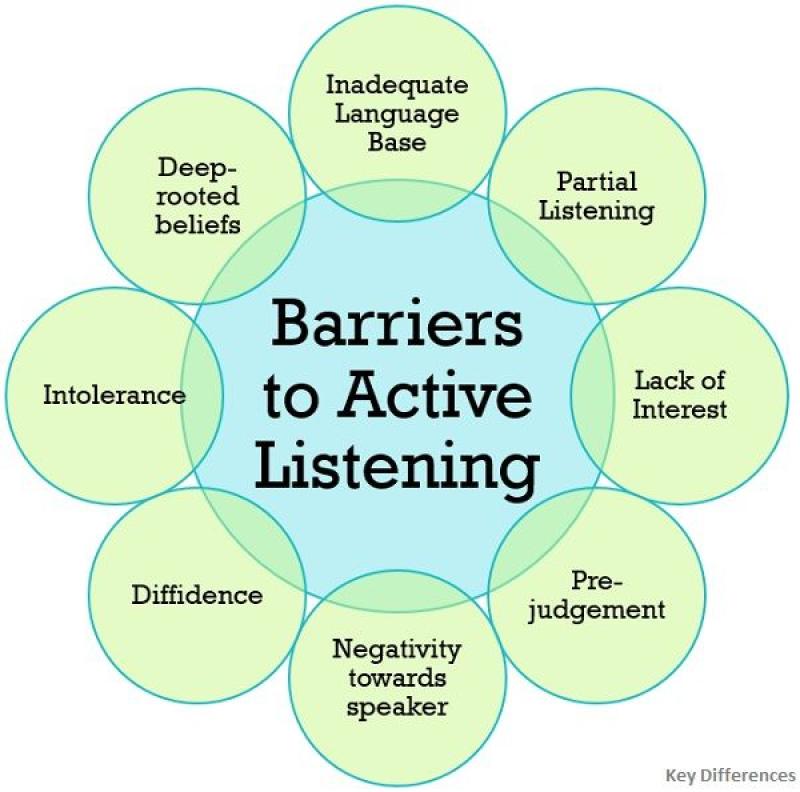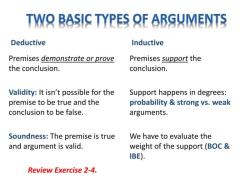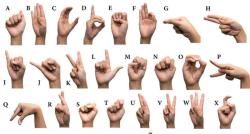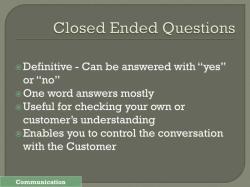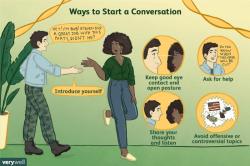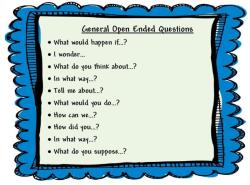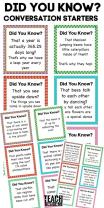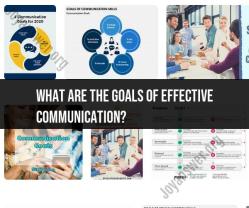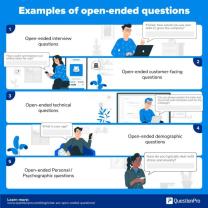What are the skills of active listening?
Active listening is a crucial communication skill that involves fully engaging with, understanding, and responding to a speaker. Here are key competencies and skills associated with active listening:
Attention:
- Focused Attention: Give the speaker your full and undivided attention. Avoid distractions and show that you are mentally present.
Nonverbal Communication:
- Eye Contact: Maintain appropriate eye contact to convey attentiveness and interest.
- Body Language: Use open and positive body language to signal receptivity.
- Nodding: Periodically nod to show understanding and agreement.
- Facial Expressions: Use facial expressions to reflect the emotions conveyed by the speaker.
Paraphrasing:
- Rephrasing Content: Summarize or paraphrase what the speaker has said to demonstrate understanding and to clarify any points.
Reflective Listening:
- Reflecting Emotions: Acknowledge and reflect the speaker's emotions to show empathy and understanding.
- Mirroring: Mirror the speaker's feelings and sentiments to establish rapport.
Clarification:
- Seeking Clarification: Ask questions for clarification to ensure you fully understand the speaker's message.
Empathy:
- Empathetic Responses: Respond with empathy to show that you recognize and understand the speaker's feelings or perspective.
Avoiding Interrupting:
- Patience: Refrain from interrupting the speaker. Allow them to express themselves fully before responding.
Reserving Judgment:
- Suspending Judgment: Avoid forming judgments or making assumptions until you have a complete understanding of the speaker's message.
Summarization:
- Summarizing Key Points: Provide a summary of the main points to confirm your understanding and show that you are actively engaged.
Asking Open-Ended Questions:
- Encouraging Dialogue: Pose open-ended questions to encourage the speaker to elaborate and share more details.
Avoiding Distractions:
- Minimizing Distractions: Create an environment conducive to active listening by minimizing external distractions.
Feedback:
- Providing Feedback: Offer constructive feedback to convey that you are actively participating in the conversation.
Cultural Sensitivity:
- Cultural Awareness: Be sensitive to cultural differences in communication styles and adapt your listening approach accordingly.
Memory Recall:
- Recalling Information: Remember and recall important details shared by the speaker to demonstrate that you value their input.
Open-Mindedness:
- Open-Minded Listening: Approach the conversation with an open mind, being willing to consider different perspectives.
Silence:
- Using Silence: Allow moments of silence to give the speaker time to gather their thoughts or express themselves fully.
Active listening is a dynamic skill that involves a combination of verbal and nonverbal cues, along with emotional intelligence. Developing and practicing these skills can enhance communication, build stronger relationships, and contribute to a more positive and collaborative environment.
The art of active listening: Cultivating essential skills for enhanced communication
Active listening is a crucial communication skill that involves giving full attention to the speaker, understanding their message, and responding thoughtfully. It goes beyond simply hearing the words; it requires actively engaging with the speaker's verbal and nonverbal cues to gain a deeper understanding of their perspective and emotions.
Mastering the nuances of nonverbal cues: Decoding body language and facial expressions
Nonverbal communication, including body language, facial expressions, and tone of voice, conveys a significant portion of the speaker's message. Active listeners pay attention to these nonverbal cues to gain insights into the speaker's feelings, intentions, and overall state of mind.
Asking clarifying questions: Demonstrating attentiveness and ensuring understanding
Asking clarifying questions is an essential part of active listening. It demonstrates your attentiveness, encourages the speaker to elaborate, and ensures that you fully understand their message. Effective clarifying questions are open-ended, seek further explanation, and avoid judgment or assumptions.
Paraphrasing and summarizing: Reflecting back what you hear and solidifying comprehension
Paraphrasing and summarizing involve restating the speaker's message in your own words. This process helps to solidify your understanding, identify any misconceptions, and ensure that you have grasped the core of what the speaker is trying to convey.
Empathetic engagement: Building rapport and fostering meaningful connections
Empathetic engagement is the ability to connect with the speaker on an emotional level. It involves acknowledging their feelings, showing genuine interest in their experiences, and creating a safe and supportive environment for open communication.
Benefits of Active Listening:
- Enhanced communication and understanding
- Stronger relationships and connections
- Improved problem-solving and conflict resolution
- Increased productivity and collaboration
- Greater personal and professional success
Active listening is a skill that requires practice and dedication. By consciously applying these principles, you can become a more effective communicator, build stronger relationships, and achieve greater success in all aspects of your life.
